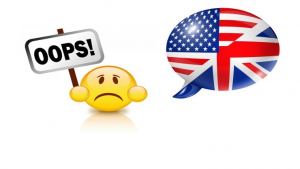Language/English/Vocabulary/Common-Mistakes/zh
如果你想提高你的英语水平,看看这里你应注意的易犯的错误。我在本站见过不知多少次这些错误(有时还在批改里)。如果你难以正确使用这些词汇,别担心,因为英语母语者也容易混淆。
如果你是初学者,别担心小处正确与否,要放眼全局。
即使你使用了错误的词语,别人还是能听懂你说的话。
本文主要为进阶学习者和受试者所撰。
By the way, it's really awesome of you to take an interest in the intricacies of the language, as many native speakers don't even care to learn the difference between these words.
What vs Which?
(This is the most common mix-up I have seen on this website).
- What is used for an undefined number of things.
“What color dress should I wear?” (there could be millions of different colors)
- Which refers to a defined number of things.
If you were choosing between three different colored dresses in your closet, you would use which. “Which color dress should I wear?”
Who vs. Whom?
If in doubt, choose “who.” I’m not sure how strict other countries are on this rule, but most Americans don’t care.
The general rule is, if you can substitute “he” into the sentence, then the correct word is “who.” If you can substitute “him” into the sentence, the correct word is “whom.”
“I know whom the story was about.” (Using the substitution, “The story was about him.”) “I know who wrote the story.” (Using the substitution, “I know he wrote the story.”)
Further vs. Farther
Farther refers to physical distance, while further means to a greater degree.
“I don’t know how much farther I can walk.” “You shouldn’t need any further explanation after you read this article.”
Loose vs. Lose
- Loose is an adjective.
“That screw is loose.”
- Lose is a verb, meaning to not win something or to misplace/not be able to find something.
“You always lose when you play Monopoly.” “Did you lose your ring again?”
Affect vs. Effect
- Affect is a verb.
“Your sadness affects other people.”
- Effect is a noun.
“Studying has a profound effect on test scores.”
Accept vs. Except
- Accept means to agree or receive something.
“I accept your apology.” “In 2016, Leonardo DiCaprio finally accepted his first Oscar.”
- Except means aside from, as a way of excluding things.
“I’d be happy with any color except pink.”
Few vs. Less
- Few means small in number, and is used with something that can be counted. You can also use “fewer” to compare things.
“There were few reasons why I hated him, but they were strong ones.” “After he ate a jelly bean, there were fewer in the jar.”
- Less means smaller in amount, and is used with something that can be measured, but not definitively counted.
“After he drank water, there was less of it in the bottle.”
Then vs. Than
- Then is used as a transition in time.
“I went to the mall, then I went to the park.”
- Than is used to compare things to one another.
“My brother has more money than me.” English is a pretty complicated language when you put all these similar words next to each other. They look virtually the same, but have different meanings. Don't worry if it takes a while to get the hang of these words!
Good luck with your English!

